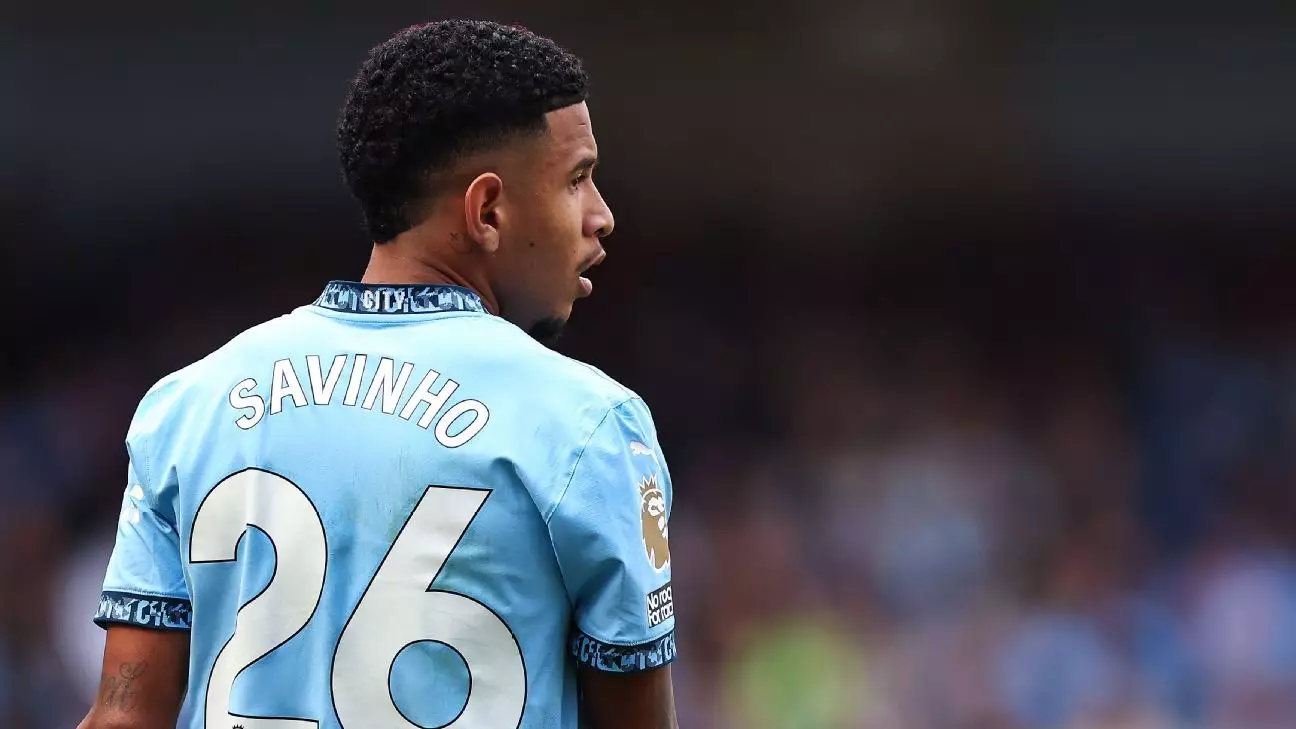Manchester City’s decision to keep Savinho beyond the summer transfer window underscores a strategic vision that prioritizes development over transactional agility. While Tottenham Hotspur and other clubs might have seen a young talent like Savinho as a quick fix to bolster their attack, City’s stance reveals an unwavering belief in nurturing potential over hastily replacing him. This approach reflects an understanding that patience and sustained investment can lead to greater rewards, particularly with promising players who may take time to fully blossom. Far from being simply obstinate, City’s management appears to recognize that rushing a sale could hinder the player’s growth and, ultimately, undermine the club’s long-term aspirations.
The Value of Development Over Immediate Gains
Savinho’s trajectory at Manchester City exemplifies a calculated gamble that could pay significant dividends. His limited yet promising debut season, marked by three goals in nearly fifty appearances, indicates that he’s a player with untapped potential. City’s decision to retain him, despite external interest, suggests a belief that he is an essential piece of Guardiola’s evolving tactical system. Rushing him out the door, especially with the allure of immediate financial gain, might have been shortsighted. The club’s unwavering support provides Savinho with the stability necessary to develop his skills and confidence, which is often lacking in high-pressure transfer decisions aimed at short-term victories.
The Ripple Effects of a Firm Stance on Player Retention
Manchester City’s refusal to entertain Tottenham’s overtures conveys a broader message about club priorities. It’s a signal that they value the nuanced process of player development and recognize that patience can translate into a competitive advantage. Moreover, the fact that City was prepared to replace Savinho with a player like Rodrygo, only to hold firm in the end, speaks to their confidence in nurturing their own talent rather than chasing after external solutions. Such confidence can translate into a more cohesive team dynamic, where players feel valued and trust that the club’s plans for their growth are genuine, rather than influenced solely by market forces.
Leadership from Guardiola and the Power of Belief
Pep Guardiola’s public praise of Savinho displays a crucial element of modern management: belief in young players’ potential. By publicly expressing his hope that Savinho remains with City “for many, many years,” Guardiola elevates the player’s status within the squad and signals that he sees the youngster as part of the club’s future. This kind of endorsement not only boosts Savinho’s morale but also encourages other players to buy into the club’s vision of organic growth. In an era where transfer frenzy often dominates headlines, Guardiola’s approach highlights the power of patience coupled with genuine faith in nurturing young talent.
The Implications for Future Transfers
City’s stance could set a precedent for how clubs view talent development versus market-driven acquisitions. Instead of succumbing to immediate pressures and monetary temptations, maintaining loyalty to a promising young player can pay dividends in consistency and team cohesion. Although some might argue that this limits short-term flexibility, the long-term gains—both on the pitch and in the club’s reputation—are evident. Manchester City’s unwavering commitment to Savinho exemplifies a broader philosophy that prioritizes sustained growth, strategic patience, and belief in the club’s developmental pathway over fleeting transfer market gains.

